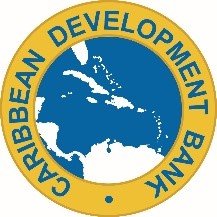OECS Commission Brings High-Level Economic & Institutional-Strengthening Workshop to the British Virgin Islands
JOINT MEDIA RELEASE
Five-day training at Robert Mathavious Institute (12–16 May 2025) will sharpen local capacity to analyse poverty, manage public institutions and accelerate evidence-based development.
Road Town, Tortola—The Organisation of Eastern Caribbean States (OECS) Commission, in partnership with the Caribbean Development Bank (CDB), will host a five-day “Macro-Social-Economic Analysis & Institutional Assessment” (MSEA-IA) workshop from 12–16 May 2025 at the Robert Mathavious Institute, Oleander Building, JOMA Properties, Port Purcell. The training is a flagship activity of the Enhanced Country Poverty Assessment (eCPA) programme that spans all nine OECS Member States.
Why the workshop matters for the BVI
- Builds home-grown analytical skills. BVI public- and private-sector participants will learn to interrogate national data on growth, jobs, social protection, climate risk and service delivery, using CDB’s internationally recognised eCPA toolkits. This equips local teams to produce high-impact poverty and vulnerability assessments without relying exclusively on external consultants.
- Strengthens institutions that citizens rely on. The Institutional Assessment (IA) sessions show how to rate agencies on policy quality, effectiveness, equity and accountability—then close gaps so that schools, hospitals and social-protection bodies serve the public better.
- Informs smarter, faster investment decisions. A robust MSEA pinpoints the sectors, locations and population groups where targeted financing will deliver the greatest poverty-reduction pay-off—vital intelligence as the BVI positions itself for resilient post-pandemic growth.
- Creates a cadre of certified trainers. Participants leave with practical “train-the-trainer” materials, seeding a nucleus of local experts who can replicate the methodology across ministries and NGOs.
- Aligns the Territory with regional & global benchmarks. Outputs plug directly into SDG monitoring frameworks and OECS regional dashboards, ensuring that BVI progress is visible to investors and development partners.
What participants will experience
- Four interactive sessions per day covering demographic analysis, fiscal trends, labour-market dynamics, climate-change impacts, institutional survey techniques and gap-analysis tools.
- Hands-on use of Survey Solutions software, giving attendees real-time practice in digital data-collection and dashboard visualisation.
- Group simulations that walk teams through drafting an executive summary, policy matrix and monitoring plan for an actual MSEA-IA report.
OECS Commission leadership
Ms. Sisera Simon, Head of the OECS Human & Social Division, notes:
“The eCPA is about empowering Member States to own their development story. By bringing this training to BVI we are investing in the BVI’s ability to diagnose challenges, craft solutions and demonstrate results to citizens and partners alike.”
CDB Investment
Elbert Ellis, Portfolio Manager, Social Sector Division, Caribbean Development Bank, emphasises: “The training workshop is a critical investment in building national capacity to conduct rigorous, context-specific analysis of the social, economic, and institutional drivers of poverty and inequality. By equipping stakeholders with the tools and knowledge to better understand social and institutional dynamics, we are empowering them to design and implement more effective, inclusive development strategies in alignment with national priorities and objectives of CDB's Enhanced CPA Programme.”
The workshop will be facilitated by Kairi Consultants Ltd.—regional pioneers in poverty diagnostics—under the oversight of the eCPA Project Coordinator. Funding is provided through a CDB technical-assistance grant.
Expected outputs
- A draft macro-social-economic profile of the BVI that highlights policy priorities for 2025–2030.
- A preliminary institutional score-card pinpointing strengths and weaknesses across key public-service agencies.
- A cadre of 25–30 national practitioners ready to finalise the BVI’s full MSEA-IA by August 2025, feeding into the Territory’s wider Country Poverty Assessment and medium-term development strategy.
About the OECS Commission
The OECS Commission drives regional integration, socio-economic development and policy harmonisation across its eleven Member States and Associate Members. Through projects like the Enhanced Country Poverty Assessment (eCPA), the Commission equips governments with data, tools and expertise to eradicate poverty and build resilient, inclusive economies.
About the Caribbean Development Bank
The Caribbean Development Bank is a regional financial institution established in 1970 for the purpose of contributing to the harmonious economic growth and development of its Borrowing Member Countries (BMCs). In addition to the 19 BMCs, CDB’s membership includes four regional, non-borrowing members (Brazil, Colombia, Mexico, and Venezuela) and five non-regional, non-borrowing members (Canada, China, Germany, Italy and the United Kingdom). CDB’s total assets as at December 31, 2023, stood at US$3.43 billion (bn). These include US$2.03 bn of Ordinary Capital Resources and US$1.40 bn of Special Funds Resources. The Bank is rated Aa1 Stable by Moody’s, AA+ Stable by Standard & Poor’s and AA+ Stable by Fitch Ratings. Read more at caribank.org.
Dania Bogle
Edwin St. Catherine
Malika Thompson-Cenac
OECS Communications Unit
